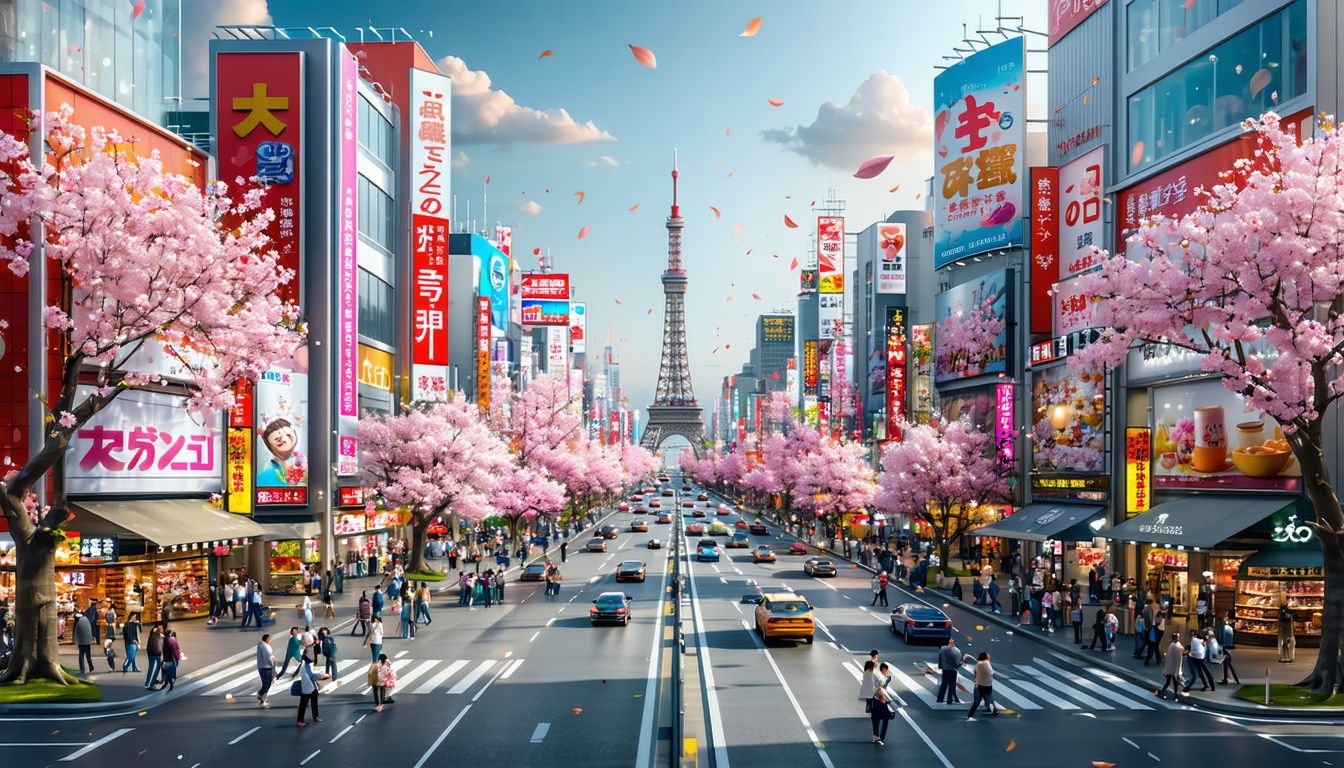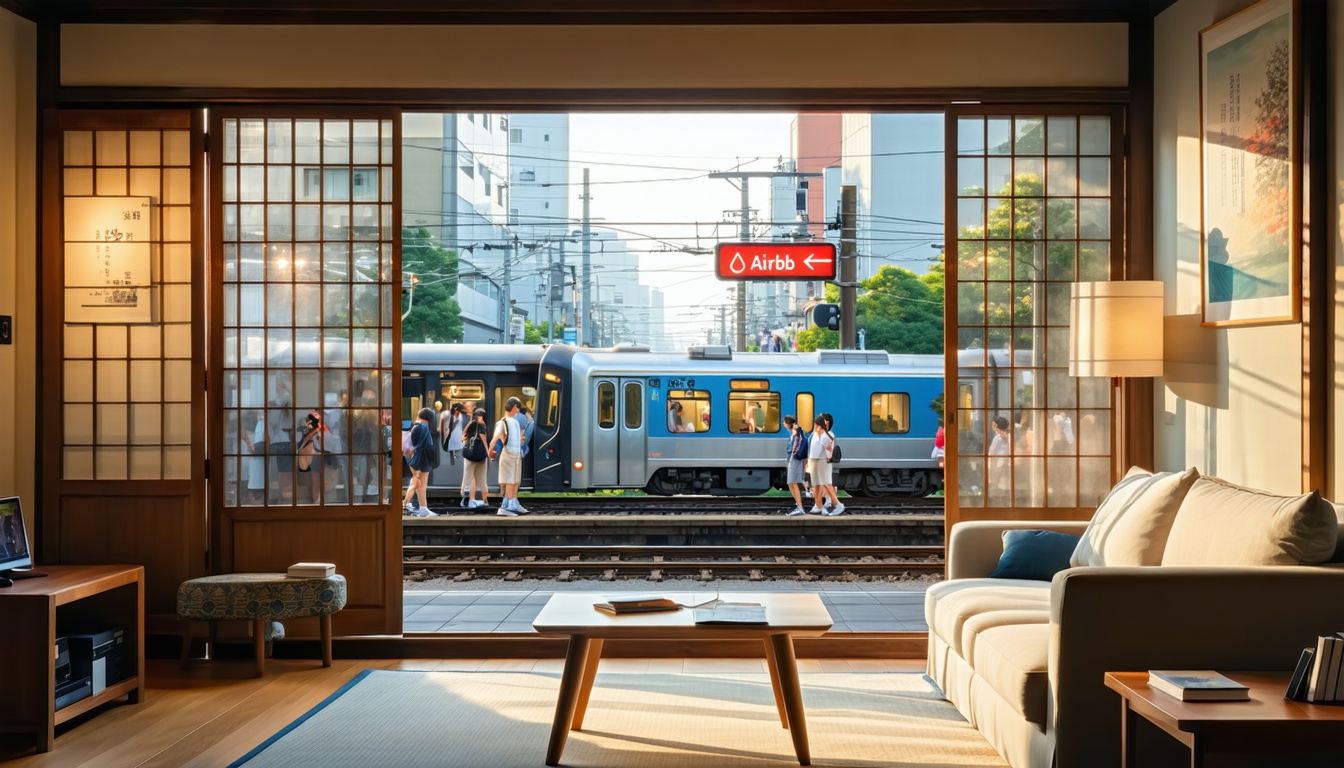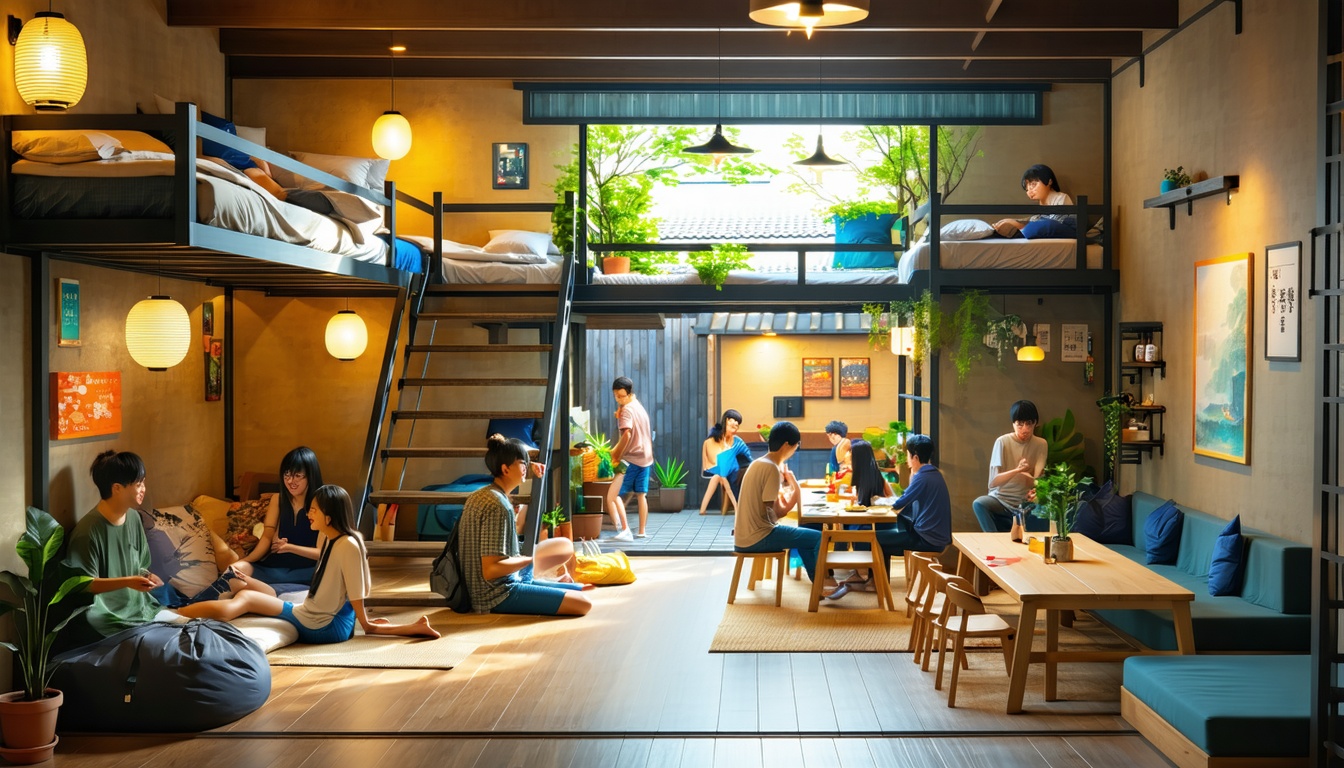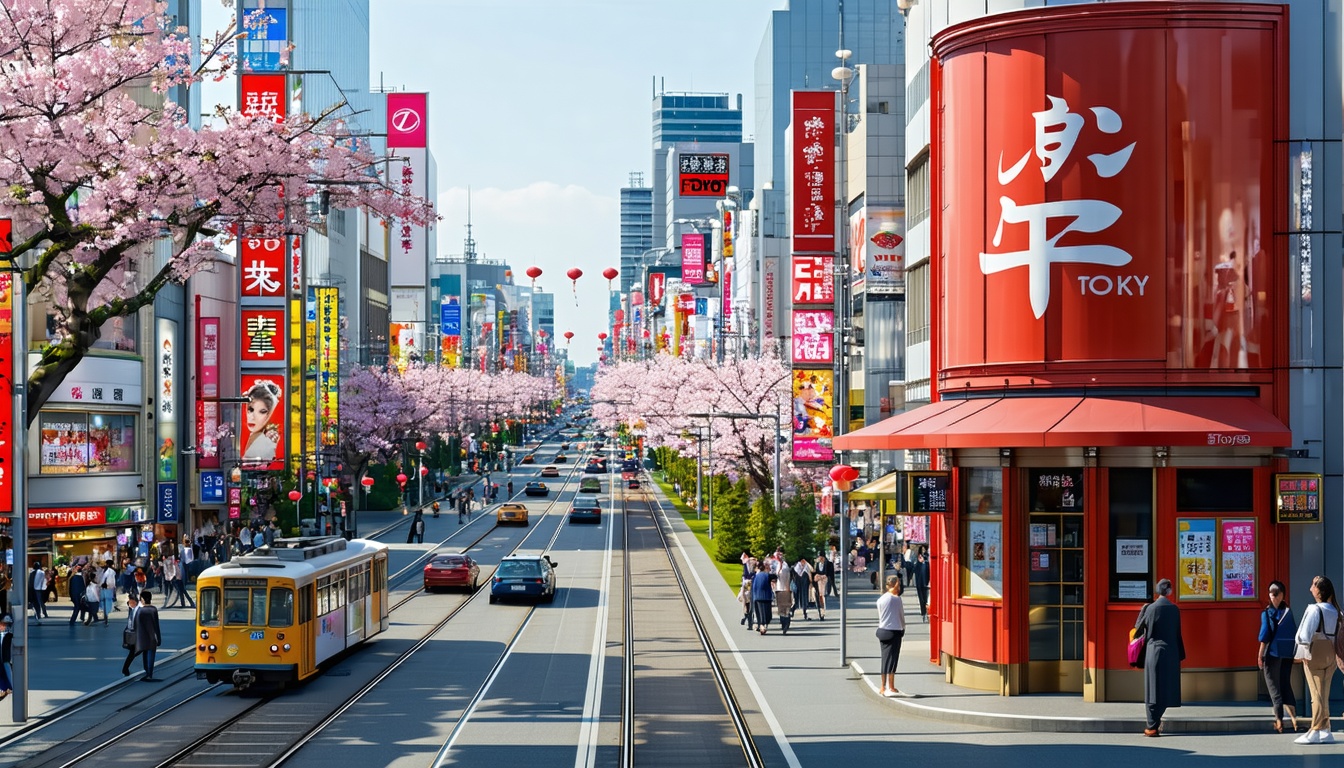Your Guide to Unforgettable Tokyo Modern Seasonal Events

Picture this, you’re strolling under a canopy of pink petals or dancing to pulsing beats beside Tokyo Bay. Tokyo modern seasonal events give you a front-row seat to the city’s lively cultural calendar. In this guide, you’ll discover the best festivals, fairs, and illuminations for every season, so you can plan your trip with confidence and soak up unforgettable Tokyo moments.
Explore spring events
Spring in Tokyo is all about fresh starts and bright blooms. You’ll find everything from centuries-old rituals to foodie pop-ups, all set against a backdrop of cherry blossoms.
Cherry blossom festivals
Hanami (flower viewing) kicks off the season with a bang. Ueno Park’s 1,000 cherry trees form a dreamy pink tunnel, complete with food stalls and lanterns lighting up after dark. Best viewing usually peaks late March to early April (Japan Guide). If you prefer a quieter vibe, head to Shinjuku Gyoen National Garden where early-blooming varieties give you up to two extra weeks of sakura bliss. Remember to reserve your weekend visit between March 22 and April 6, 2025.
-
Where to go: Ueno Park, Shinjuku Gyoen
-
When to join: Late March–early April
-
Tip: Check tokyo hanami cherry blossom spots for hidden gems
Meiji Jingu spring grand festival
Held each May at Meiji Jingu shrine, this festival combines ancient court dances, Noh theater, Kyogen comedy, and traditional Biwa lute performances. It’s a living museum of Japan’s performing arts. The dedication ceremonies bring out Tokyo’s spiritual side amid lush greenery.
-
Dates: May 2025
-
Location: Meiji Jingu, Shibuya
-
Highlights: Ancient court dances, Noh theater, Kyogen comedy
-
Source: Magical Trip
Asakusa yabusame horseback archery
Feel the rush as galloping steeds thunder past, archers sending arrows streaking toward targets. Asakusa Yabusame takes place April 19, 2025, in Sumida Park. This martial art spectacle dates back to the Kamakura era and shows off incredible horseback skills.
-
Date: April 19, 2025
-
Location: Special equestrian grounds, Sumida Park
-
Why attend: Unique blend of sport, tradition, pageantry
-
Source: Magical Trip
CRAFT GYOZA FES Tokyo
If you’re a gyoza lover, don’t miss this gourmet gathering in Komazawa Olympic Park. Dozens of stalls serve creative dumplings alongside chilled beer—a perfect spring outing.
-
When: May (midsummer vibes)
-
Where: Komazawa Olympic Park
-
Must-try: Crab miso gyoza, yuzu pepper filling
-
Source: Magical Trip
Plan for rainy days
June marks Japan’s rainy season (tsuyu), but soggy skies don’t have to dampen your fun. In fact, Tokyo modern seasonal events include plenty of indoor delights.
Explore museum exhibitions
Tokyo’s top museums host spring and early summer shows. Art lovers can catch Renoir and Cézanne pieces this spring, so you’ll admire masterpieces without the crowds.
-
Where to go: Tokyo National Museum, Mori Art Museum
-
Tip: Book tickets early for weekend slots
Dive into indoor festivals
Street fairs move under cover in June. Indoor plant markets at Ota Ward’s Senzoku-Ike offer lush photo ops and workshops. You’ll learn ikebana (flower arranging) while staying dry.
-
Event: Senzoku-Ike spring festival (Japan Travel)
-
Highlights: Workshops, pondside strolls, café pop-ups
Discover rainy-season activities
You might wonder what else to do when it’s drizzling. Check out this list of tokyo rainy season activities for tea ceremonies, rain-themed festivals, and cozy cafés with matcha parfaits.
Dive into summer festivals
Summer heats up Tokyo’s calendar with neon nights, fireworks, dance parades, and electrifying beats.
Sumida river fireworks
One of Tokyo’s oldest firework shows lights up the Sumida River each July. Around 20,000 fireworks burst overhead, and 700,000 spectators line the banks. Pack a picnic blanket, grab drinks from konbini, and claim your spot early.
-
When: Late July (Magical Trip)
-
Tip: Take public transit—roads close early
Ultra Japan in Odaiba
Tokyo’s big EDM festival returns to Odaiba in mid-summer, featuring world-class DJs and immersive light shows. If you love dance music, this modern event is a can’t-miss.
-
Location: Odaiba, waterfront stage
-
Why go: Global DJ lineup, futuristic visuals
-
Source: Japan Travel
Koenji awa odori dance festival
Dating back to 1957, this late-August event transforms Koenji Station into a dance party. Over 10,000 performers clad in vibrant costumes parade through the streets, chanting “Yatto sai, yatto sai.”
-
When: Late August 2025
-
Where: Koenji district
-
What to expect: Traditional dance, live music, local stalls
-
Source: Magical Trip
Admire autumn traditions
Autumn in Tokyo is a tapestry of red and gold. Temperatures cool, leaves glow, and festivals honor harvest and nature.
Autumn ginza event
Each October, Ginza showcases seasonal crafts, food stalls, and live performances on Chuo Dori. You’ll taste sweet chestnuts, watch traditional drumming, and shop limited-edition autumn souvenirs.
-
When: Mid-October
-
Location: Ginza main street
-
Highlights: Food stalls, craft booths, street performances
-
Source: Japan Travel
Rikugien autumn illuminations
From mid-November to early December, Rikugien Garden lights up with over 100,000 LED bulbs. The lanterns trace winding paths among blood-red maples and golden gingko trees, creating a magical evening stroll.
-
Dates: Mid-Nov to early Dec (Japan Travel)
-
Tip: Weekday visits avoid crowds
Momiji leaf-viewing spots
Momijigari (leaf hunting) is a fall ritual. Popular sites include Mt. Takao, Meiji Jingu Gaien, and Koishikawa Korakuen Garden. You’ll find calm ponds framed by fiery foliage—ideal for photos or a serene picnic.
-
Check out tokyo autumn leaves best spots for top recommendations
-
Best months: Late November–early December
Enjoy winter illuminations
Tokyo winters are mild, making outdoor light displays a cozy nightly ritual. Millions of LED bulbs transform parks, streets, and Tokyo Station into glittering wonderlands.
Marunouchi illumination
Around Tokyo Station, roughly 1 million bulbs outline trees and archways from early November to mid-February. It’s an easy add-on to a dinner date or evening stroll.
-
Dates: Early Nov–mid Feb (Magical Trip)
-
Must-see: Galactic tunnels of light near Marunouchi Naka-dori
Ueno park winter lights
Ueno Park extends its cherry blossom illuminations into winter around Shinobazu Pond until mid-April, offering a unique blend of seasonal overlap.
-
Lights until April 13, 2025 (Japan Guide)
-
Pair it with a museum visit on cold days
Christmas markets and new year ceremonies
Festive markets pop up in Roppongi Hills and Yebisu Garden Place with mulled wine, artisanal crafts, and holiday music. After Christmas, head to Meiji Jingu or Kanda Myojin for Hatsumode (first shrine visit), experiencing tokyo new year celebrations.
-
Markets: Late Nov–Dec 25
-
Shrine visits: Jan 1–3
-
Tip: Carry warm layers, Tokyo nights can dip to 5°C
Plan your visit
To make the most of Tokyo modern seasonal events, timing and prep are key. Here’s a quick checklist:
-
Consult a tokyo festival calendar for exact dates
-
Review tokyo seasonal weather to pack smart
-
Book accommodations early for peak times like hanami and fireworks
-
Use public transit passes to navigate crowd-friendly routes
-
Check tokyo seasonal clothing tips for each season
Frequently asked questions
1. What’s the best time to see cherry blossoms in Tokyo? Peak bloom generally falls late March to early April, depending on weather. Ueno Park hits full bloom around March 30, 2025 (Japan Guide).
2. Are Tokyo summer festivals crowded? Yes, major events like Sumida River fireworks and Ultra Japan draw tens of thousands. Arrive early or scout side streets for less busy vantage points.
3. Do I need tickets for winter illuminations? Most street and park displays are free. Special exhibitions (light tunnels in commercial areas) may charge an entry fee.
4. How can I stay dry during tsuyu (rainy season)? Pack a lightweight umbrella and explore indoor festivals, museum exhibits, and covered shopping arcades. Check tokyo indoor activities rain for ideas.
5. Can I join traditional dance festivals as a visitor? Some events like Awa Odori welcome walk-ins without registration. For large parades, you’ll need to be a registered dancer. Spectating is free and always festive.
Enjoy every Tokyo season, and let these modern seasonal events spark memories that last a lifetime.


